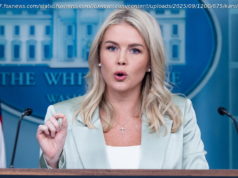President avoids mention of border dispute with India but admits there are differences between bloc members
Chinese President Xi Jinping has called on a bloc of emerging economies to band together to reshape the rules of global governance, despite international headwinds and internal divisions.
Addressing more than 1,000 business executives at the start of the BRICS business forum in Xiamen, Fujian province, on Sunday afternoon, Xi rejected criticism that the bloc had lost some of its lustre since it was launched a decade ago with high hopes of powering the global economy.
“It is no secret that BRICS is combating various headwinds in development, but the potential and trend of continued progress has not changed. We are full of confidence, ” Xi said.
He said the combined value of the bloc’s five member economies – Brazil, Russia, India, China and South Africa – had grown 179 per cent over the decade, with their total trade volume nearly doubling.
He said changes in the global economic structure, shrinking market demand and mounting financial risks posed challenges to the bloc but the answer was not just to pursue economic growth. Countries should also turn to smart manufacturing, digital technology and the sharing economy – all tacks that China had taken.
Xi also said BRICS had a role to play in upholding world peace.
“ [BRICS] will take part constructively in the processes of solving geopolitical issues, ” he said.
The business forum comes a day ahead of the BRICS leaders’ summit, where China will try to overcome internal divisions to amplify the bloc’s voice on the global stage.
In the months leading up the summit, India and China had been at odds over a border in a remote part of the Himalayas, before both sides agreed to withdraw last week.
Xi did not refer directly the border stand-off, but he acknowledged historical and cultural differences between BRICS members and called for greater trust to dispel suspicions.
He also called on the bloc to work together to promote free trade and investment, fight protectionism and create a “new global value chain”.
“The development of emerging markets and developing countries is not meant to move anybody’s cheese, but to make a bigger global economic cake, ” Xi said.
BRICS summit in China tipped to tackle protectionism in face of Trump’s ‘America first’ agenda
“We should also improve the global economic governance regime to reflect the reality of the global economic landscape, and make better rules to cover new areas such as the internet and deep sea, polar, space [development] .”
The president also promoted his “Belt and Road Initiative”, an outbound economic strategy resisted by India over fears of China’s growing influence in South Asia, New Delhi’s traditional sphere of influence.
“ [The initiative] is not a geopolitical tool but a pragmatic platform for cooperation. It is not a foreign aid plan, but an initiative for joint discussion, joint construction and shared interests, ” Xi said.
North Korean nuclear crisis casts a shadow over China’s BRICS summit
Renmin University international relations professor Wang Yiwei said tensions remained between China and India, the bloc’s biggest two economies, and these could affect the group’s future.
Wang said BRICS was no longer just an economic grouping but “now covers political, security and economic issues which require broader vision”.






